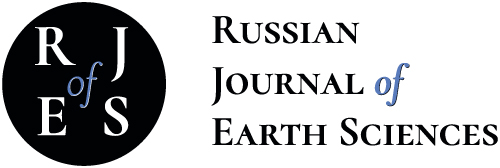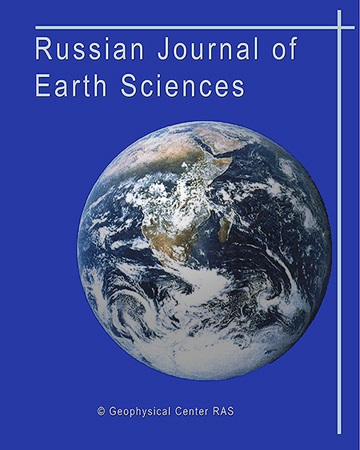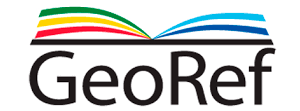This paper is dedicated to the analysis and comparison of various mathematical toolkits, applicable to the assessment of sustainability/vulnerability of distributed sociotechnical systems (DSTS) to natural disasters. A ``black box''-based general description of the DSTS operation is given. This description is used for consideration of capabilities and limitations of mathematical models of DSTS, known from the operations research and knowledge engineering areas. All tools mentioned are compared by representation of DSTS operational logic, impacts on DSTS, and criteria for recognition of a system's sustainability. Algorithmic and implementation issues are discussed. Conclusions about applicability of the tools to the problem of sustainability/vulnerability of DSTS and possible future developments are presented.
Distributed sociotechnical systems, sustainability, vulnerability, systems analysis, operations research, knowledge engineering, scheduling theory, Petri nets, mathematical programming, logic programming, constraint programming, deductive data bases, multiagent systems, multiset grammars
1. Adams, W. M., Jeanrenand, S. J. Transition to Sustainability: Towards a Human and Diverse World - Gland, Switzerland: International Union for Conservation of Nature and Natural Resources (IUCN)., 2013. - 108 pp.
2. Artigues, C. Scheduling and (Integer) Linear Programming - Toulouse: LAAS-CRNS [ampersand] Universite de Toulouse., 2012. - 168 pp.
3. Bakari, M. E.-K. The Dilemma of Sustainability in the Age of Globalization: A Quest for a Paradigm of Development - NY: Lexington Books., 2017.
4. Baker, K. R., Trietsch, D. Principles of Sequencing and Scheduling - Hoboken, New Jersey: John Wiley [ampersand] Sons., 2009. DOI: https://doi.org/10.1002/9780470451793; EDN: https://elibrary.ru/XMSXWB
5. Ball, M., Magnanti, T. , Monma, B. , Niemhauser. G. L. (eds.) Network Models. Handbook in Operations Research and Management Science, Vol. 7 - Amsterdam: Elsevier Science., 1995. - 798 pp.
6. Baptiste, Ph., Le Pape, C., Nuijten, W. Constraint-Based Scheduling: plying Constraint Programming to Scheduling Problems - Berlin, Heidelberg: Springer., 2001. - 198 pp.
7. Black, I. R., Cherrier, H. Anti-consumption as part of living a sustainable lifestyle: Daily practices, contextual motivations and subjective values, // Journal of Consumer Behavior, 2010. - v. 9 - no. 6 - p. .
8. Brucker, P. Scheduling Algorithms - Berlin: Springer-Verlag., 2001. - 365 pp.
9. Ceri, S., Gottlob, G., Tanca, L. Logic Programming and Databases - Berlin: Springer-Verlag., 1990. - 280 pp.
10. Chatfield, C., Johnson, T. Microsoft Project 2013 Step by Step - Indianapolis: Microsoft Press., 2013. - 576 pp.
11. Chiang, A. C., Wainwright, K. Fundament Methods of Mathematical Economics - New York: McGraw-Hill., 2005. - 700 pp.
12. Date, C. J. SQL and Relational Theory. How to Write Accurate SQL Code - Sebastopol, CA: O'Reilly., 2009. - 474 pp.
13. De Moor, O. (eds.), et al. Datalog Reloaded // Lecture Notes in Computer Science, Vol. 6702 - Berlin-Heidelberg: Springer., 2011. - p. .
14. Dennis, J. B. Mathematical Programming and Electrical Networks - Cambridge, MA: MIT., 1959. - 186 pp.
15. Desrochers, A. A., Al-Jaar, R. Y. Applications of Petri Nets in Manufacturing Systems: Modeling, Control, and Performance Analysis - NY: IEEE Press., 1995.
16. Dubois, J., Gvishiani, A. Dynamic Systems and Dynamic Classification Problems in Geophysical plications - Paris: Springer-Verlag., 1998. - 256 pp.
17. Flondas, C., Lin, X. Mixed Integer Linear Programming in Process Scheduling: Modeling, Algorithms, and Applications, // Annals of Operations Research, 2005. - v. 139 - p. 131. DOI: https://doi.org/10.1007/s10479-005-3446-x; EDN: https://elibrary.ru/KYVPQQ
18. Gallaire, H., Minker, J., Nicolas, J.-M. Logic and Databases: A Deductive Approach, // ACM Computing Surveys, 1984. - v. 16 - no. 2 - p. 153.
19. Gartner, B., Matonsek, J. Understanding and Using Linear Programming - Berlin: Springer., 2006.
20. Geissdoerfer, M., Savaget, P. , Bocken, N. M. P. , Hultink, E. J. The Circular Economy - A New Sustainability Paradigm, // Journal of Cleaner Production, 2017. - v. 143 - p. 757.
21. Grachov, A. Yu. Introduction to Informix DBMS - Moscow: Dialog-MEPHI., 2000.
22. Gvishiani, A., Dubois, J. Artificial Intelligence and Dynamic Systems for Geophysical Applications - Paris: Springer-Verlag., 2002. - 350 pp. DOI: https://doi.org/10.1007/978-3-662-04933-4; EDN: https://elibrary.ru/RTDWVH
23. Gvishiani, A. D., Agayan, S. M., Bogoutdinov, Sh. R. Fuzzy recognition of anomalies in time series, // Doklady Earth Sciences, 2008. - v. 421 - no. 1 - p. 838. DOI: https://doi.org/10.1134/S1028334X08050292; EDN: https://elibrary.ru/LKXKYV
24. Gvishiani, A., et al. Survey of Geomagnetic Observations Made in the Northern Sector of Russia and New Methods for Analysing Them, // Surveys in Geophysics, 2014. - v. 35 - no. 5 - p. 1123. DOI: https://doi.org/10.1007/s10712-014-9297-8; EDN: https://elibrary.ru/SNUEJF
25. Gvishiani, A., et al. Automated Hardware and Software System for Monitoring the Earth's Magnetic Environment, // Data Science Journal, 2016. - v. 15 - p. 1123. DOI: https://doi.org/10.5334/dsj-2016-018; EDN: https://elibrary.ru/XVKHMB
26. Hermann, M., Pentek, T., Otto, B. Design Principles for Industrie 4.0 Scenarios // 2016 49th Hawaii International Conference on System Sciences - Hawaii: HICSS., 2016.
27. Hillier, F. S., Lieberman, G. J. Introduction to Operations Research - Boston, MA: McGraw-Hill., 2014.
28. Huws, U. Capitalism and the Cybertariat - Contradictions of the Digital Economy, // Monthly Review, 2015. - v. 66 - no. 8 - p. 1123.
29. Jensen, P. A., Bard, J. F. Operations Research Models and Methods - New York: John Wiley [ampersand] Sons., 2003. - 623 pp.
30. Karam, S., Jones, B. Oracle Grid and Real Application Clusters: Oracle Grid Computing with RAC - Rampant: TechPress., 2014. - 214 pp.
31. Kowalski, R. Predicate Logic as Programming Language // Information Proceedings 74 - Amsterdam: North Holland Publishing Company., 1974. - p. 569.
32. Kowalski, R. A. Algorithm = Logic + Control, // Communications of the ACM, 1979. - v. 22 - no. 7 - p. 424.
33. Le Billon, P. (ed.) The Geopolitics of Resources Wars. Resource Dependence, Governance and Violence - London-New York: Routledge Taylor [ampersand] Francis., 2005. - 277 pp.
34. Miller, S. An Introduction to Linear Programming - Brown: Brown University., 2007. - 28 pp.
35. The New Digital Economy:, How it Will Transform Business - Oxford: Economics., 2011. - 31 pp.
36. Paton, N. W., Diaz, O. Active Database Systems, // ACM Computing Surveys, 1999. - v. 31 - p. 1.
37. Pearce, J. M. The Case for Open Source Appropriate Technology, // Environment, Development and Sustainability, 2012. - v. 14 - no. 3 - p. 425. DOI: https://doi.org/10.1007/s10668-012-9337-9; EDN: https://elibrary.ru/IHRASF
38. Pegden, C. D. Intelligent Objects: The Future of Simulation - Simio: LLC., 2009. - 7 pp.
39. Pinedo, M. L. Scheduling Theory, Algorithms, and Systems - Berlin: Springer., 2008. - 671 pp.
40. Roberts, F. S. Planning for energy disruptions // Energy Modeling IV: Planning for Energy Disruptions - Chicago: Inst. of Gas Tech.., 1982. - p. 1.
41. Recalde, R., Silva, M., Ezpeleta, J., Teruel, E. Petri Nets and Manufacturing Systems: An Examples-Driven Tour - Zaragoza: Universidad de Zaragoza., 2004. - 47 pp.
42. Roberts, F. S. The port reopening scheduling problem // H. Kaul and H. M. Mulder (eds.), Advances in Interdisciplinary Applied Discrete Mathematics. Interconnections between Consensus and Voting Theory, Clustering, Location Theory, Mathematical Biology, and Optimization, Vol. 11 - Singapore: World Scientific., 2011. - p. 199.
43. Roos, C., Terlaky, T., Vial, J.-P. Understanding and Using Linear Programming - Berlin: Springer., 2006.
44. Samuelson, P. A. Economic Theory and Mathematics - An Appraisal, // American Economic Review, 1952. - v. 42 - no. 2 - p. 56.
45. Santoro, G. E., Tosatti, E. Optimization Using Quantum Mechanics: Quantum Annealing Through Adiabatic Evolution, // Journal of Physics A: Mathematical and General, 2006. - v. 39 - no. 36 - p. 56.
46. Sheker, R. R. The Spatial Distribution of Development in Europe and its Underlying Sustainability Correlations, // Applied Geography, 2015. - v. 63 - p. 304.
47. Sheremet, I. A. Intelligent Software Environments for Automated Information Processing Systems - Moscow: Nauka., 1994. - 544 pp.
48. Sheremet, I. A. Recursive Multisets and Their Applications - Moscow: Nauka., 2010. - 293 pp. EDN: https://elibrary.ru/QJXHEP
49. Sheremet, I. A. Recursive Multisets and Their Applications - Berlin: NG Verlag., 2011. - 249 pp.
50. Sheremet, I. A. Multiset Approach to the Estimation of Consequences of Natural Disasters Impacts on Industrial Systems, // Geoinformatics Research Papers, 2016. - v. 4 - p. 304. EDN: https://elibrary.ru/UMMJJK
51. Sheremet, I. A. Multiset Analysis of Consequences of Natural Disasters Impacts on Large-Scale Industrial Systems, // Data Science Journal, 2018. - v. 17 - no. 4 - p. 1.
52. Shoham, Y., Leyton-Brown, K. Multiagent Systems. Algorithmic, Game - Theoretic, and Logical Foundations - Cambridge, UK: Cambridge University Press., 2009. - 532 pp.
53. Tapscoft, D. The Digital Economy: Promise and ril e e of tworked telligence - NY: McGraw-Hill., 1997.
54. Udayakumar, K. Oracle SOA Patterns: Demystify Service Design and Implementation Patterns in Oracle SOA Suite - Trafford Publishing: Bloomington, Indiana., 2008. - 388 pp.
55. Ustundag, A., Cevicsan, E. Industry 4.0: Managing the Digital Transformation - Berlin: Springer., 2017.
56. Vanderbei, R. Linear Programming: Foundations and Extensions - Berlin: Springer-Verlag., 2001.
57. Verschoor, R. The Complete ASE Quick Reference Guides. 6th Edition - Amersfoort, NL: Sypron B. V.., 2012. - 150 pp.
58. Waite, M. SURF Framework for a Sustainable Economy, // Journal of Management and Sustainability, 2013. - v. 3 - no. 4 - p. 25.
59. Wooldridge, M. An Introduction to Multiagent Systems - New York: John Wiley [ampersand] Sons., 2002. - 368 pp.
60. Wright, R. A Short History of Progress - Toronto: House of Anansi Press., 2004. - 208 pp.














